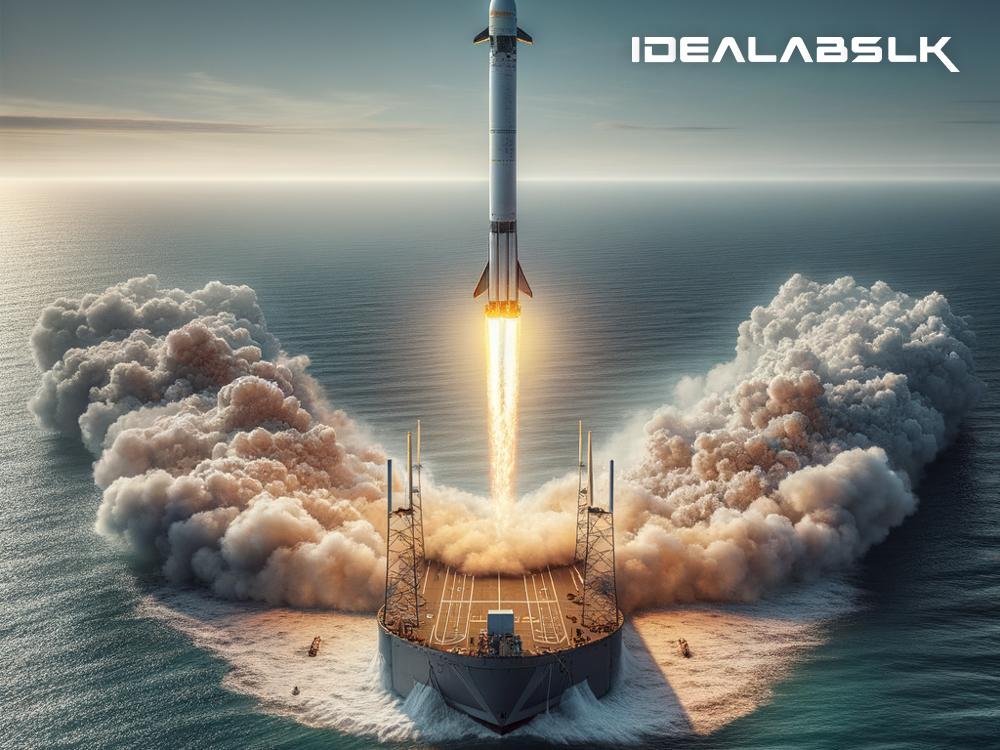How Elon Musk’s SpaceX Is Pioneering Reusable Rocket Technology and Changing the Space Industry
Once upon a time, space exploration was a dream reserved for the largest countries and the most well-funded government programs. Entering the space race meant spending enormous amounts of money, and at the end of each mission, costly rockets were left to plummet back to Earth, used only once. Then came Elon Musk and his groundbreaking venture, SpaceX, with a vision that would turn the aerospace industry on its head: reusable rocket technology.
SpaceX, short for Space Exploration Technologies Corp., was founded in 2002 by Elon Musk with the ambitious goal of reducing space transportation costs and enabling the colonization of Mars. But at the heart of SpaceX's strategy to revolutionize space travel lies a seemingly simple, yet profoundly innovative idea: what if rockets could be reused like airplanes are?
The Dawn of Reusable Rockets
For decades, the idea of reusable rockets seemed like a pipe dream. Rockets were traditionally used once, expending their parts in a costly and inefficient process that contributed to the massive expense of space missions. But Elon Musk believed that if rockets could be launched, landed, and refurbished to fly again, the cost of space travel could be dramatically reduced.
In December 2015, SpaceX achieved what many thought was impossible. The Falcon 9 rocket delivered 11 communications satellites into orbit and then returned to land vertically at Cape Canaveral. This marked the first-ever successful landing of a rocket that had orbited Earth. It was a historic moment that signaled a new era for space exploration.
How Reusable Rockets Work
The key to SpaceX's reusable rocket technology lies in precision engineering and cutting-edge technology. After a rocket launches and completes its mission—either delivering a payload to orbit, transporting astronauts, or both—the first stage (the bottom part of the rocket that provides the initial thrust at launch) separates and returns to Earth.
Guided by GPS and powered by its remaining fuel, the rocket slows its descent and uses small, strategically positioned thrusters to orient itself for a vertical landing. Various proposed and existing landing platforms include concrete pads near the launch site and autonomous drone ships stationed in the ocean. So, instead of crashing into the sea, the rocket lands gently, ready to be refueled, refurbished, and flown again.
The Impact on the Space Industry
SpaceX's success with reusable rockets has transformed the economics of space travel. The ability to reuse rockets has already significantly reduced launch costs, opening up new opportunities for scientific research, satellite deployment, and even commercial space travel.
Before SpaceX, launching a satellite could cost upward of $100 million. Now, thanks to reusable technology, prices are falling, making space more accessible than ever before. This reduction in cost is crucial for satellite-based internet, Earth observation, and the burgeoning field of space tourism.
Moreover, reusable rockets are a critical step toward Elon Musk's ultimate vision of making life multi-planetary. The cost-effectiveness and sustainability of reusable rockets make frequent and affordable travel to Mars a more tangible goal.
The Road Ahead
SpaceX continues to innovate and push the boundaries of what's possible. The development of the Starship, a fully reusable spacecraft designed to carry humans to Mars, the Moon, and beyond, represents the next frontier in SpaceX's quest. Starship aims to further reduce space travel costs and open new chapters in human space exploration.
The impact of SpaceX's reusable rocket technology reaches beyond cost savings and industrial innovation; it represents a paradigm shift in how we approach space travel. By making space more accessible, SpaceX is not only pioneering a sustainable model for the industry but also reigniting humanity's dream of exploring the final frontier.
As we stand at the brink of a new era in space exploration, it's clear that SpaceX's reusable rockets are not just changing the game; they are setting the stage for a future where space travel is a common reality, and the stars are within our reach. The sky is not the limit anymore; it's just the beginning.

